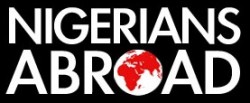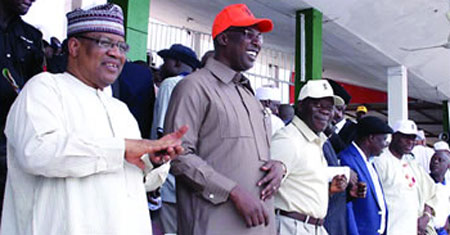In “Welcome to America” a family patriarch who has struck it big in Lagos builds a four-storey mansion and designates it the family house. Relatives from the village are to wake up one day, pack their bags and move to Lagos to stay in this house, where there will always be room for them. Most of them don’t know each other even by sight, but they all eat from the same big bowl. This anecdote works very well as a metaphor for Caine prizewinner EC Osondu’s first collection of short stories, Voice of America. There is room here for every style of storytelling, from folktale to crime tale to satire, to the very sombre and sad – and just when you think the writer has surely exhausted his bag of uproariously funny observations of street life in Lagos, or of immigrant experience in America, he unpacks more.
Many of the stories are told through the eyes of young men and women; their fresh gaze penetrates the staid and often corrupt hearts of their fathers and mothers and uncles and aunties, without prejudice or judgment. This gives the author a lot of room for irony and humour, two devices he puts to excellent use. In one of the Nigeria-set stories, “Going Back West”, Uncle Dele has been deported from the US for an unspecified offence and is now devising increasingly desperate schemes to obtain a visa to return to America. The young narrator has only admiration for his “been to” uncle and wants to go with him when the time comes.
“No, you don’t need to go with me – just read your books, and when your time comes you will come to America like a prince.” “Thanks, Uncle Dele – I know you will do your best for me, but promise you will not forget me when you go back this time.” But Uncle Dele doesn’t go back; his downward spiral into the world of moneylenders, drug trafficking and other forms of crime, all in an effort to get the elusive visa, continues to the inevitable conclusion.
In a different story, set in the US, “Stars in my Mother’s Eyes, Stripes on my Back”, the young narrator observes yet another fight between his parents. When the mother tries to call the police for help, the father shouts: “If you invite the cops and for any reason I am deported from this country, you will spend the remaining part of your stupid life in misery . . .” These Nigerians in America are trying to come to terms with life in a new country, and to do it they often have to let go of their old-world ideas of how things work. Sometimes gender roles are switched; sometimes they have to play the trickster, like the father in the checkout queue at a grocery store, pretending to be surprised that all the groceries he has piled up in his cart are so expensive. A kindly lady behind him offers to pay, certain that he would do the same for another person next time.
But the ties to Nigeria are never completely broken; they remain a compass with which these immigrants find their way in America. The women return to Nigeria to see “fertility prophets” and “miracle preachers” when they can’t conceive. Sometimes the strings from home are pulled by parents who have invested everything in their children’s fare to America, and now want some dividends.
In “A Letter from Home”, an exasperated mother writes to her son: “Why have you not been sending me money through Western Union like other good Nigerian children in America do? You have also not visited home. Have you married a white woman? Do not forget that I have already found a wife for you. Her name is Ngozi. Her parents are good Christians and her mother belongs to the Catholic Women’s League like me. Please do not spoil the good relationship I have built over the years with Ngozi’s parents.”
Some of the stories could be accused of exploiting stereotypical images of Nigerians, some of being a bit too explanatory – but often these stereotypes are used in a subversive and ironic way, turning expectation on its head. Osondu’s prose style, with its repetitions and run-ons, is that of the raconteur. It is direct and unmannered, it is inventive and humorous, but above all it is compelling.
Helon Habila is a poet and prose fiction writer. Habila is also a contributor on guardian .co.uk













